Reimagining the National Archaeological Museum
The approved expansion integrates historic architecture,…
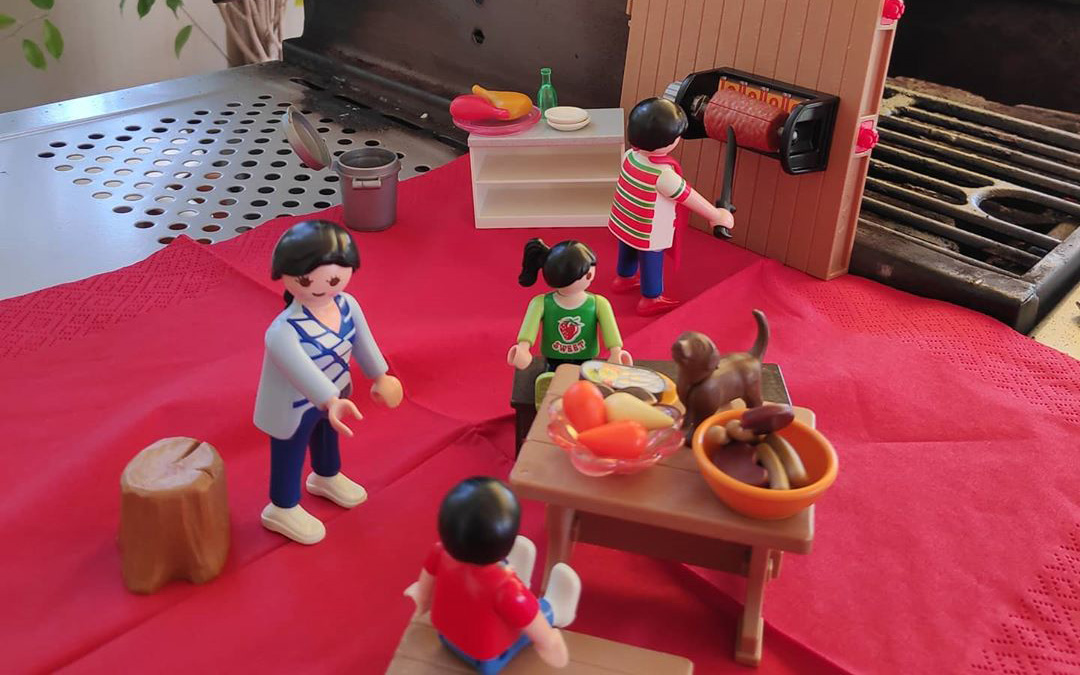
© Instagram: @playmobil_traveler
What does Easter Sunday sound like in Athens? Until last week, many city dwellers had no idea, since they would spend every Easter in the countryside. Now we know; it sounds like if you were to record the sounds of a taverna (the clinking of cutlery on plates, the scratching of chairs, animated conversation, kids laughing, the crackling of live coals, a few dogs barking excitedly, Greek music), and then use a computer program to layer the recording on top of itself an infinite number of times. That, plus the occasional bangs of firecrackers and fireworks.
At least that’s what Easter Sunday sounded like in Athens this year. To be fair, 2020 was hardly the perfect year for a general observation. Because for the first time, everyone stayed home for the holiday.
The night before made that fact dazzlingly clear to everyone. As neighbors greeted each other from their balconies with the traditional “Christos Anesti” (Christ has risen) at midnight, flares floated like slow-falling stars above the city, painting the night sky red – the traditional Easter color, and the sheer volume and light of the night verified that everyone was, in fact, still home.
Drone photography shows Athens sparkling bright like perhaps never before, as most of its over 3 million citizens all had their lights on, and fireworks exploded all around.
Of course, the lockdown didn’t just affect the Easter traditions of those living in the cities. All around the country, people scaled down their celebrations. Churches remained closed, as did restaurants and bars, and many opted not to roast a whole lamb this year, as the meals were to be shared only with those in each household.
But of course, as anyone who has spent any significant time in the presence of Greeks would expect, we still celebrated. In fact, with a lot more time on our hands, some traditions were even given more attention than normal, as people got creative dyeing their eggs, and tested their baking skills by making tsoureki (sweet bread) and koulourakia (traditional cookies) for the first time. Here are some of the ways the Greeks celebrated Easter in isolation:
Like in other Easter celebrating countries, eggs have a special place on the holiday table in Greece. The eggs are traditionally dyed red, though this year, as many people found themselves with loads of spare time, a lot more creative variations filled our Instagram feed. While Greeks don’t usually organize egg hunts, we have our own game, known as “tsougrisma”, or egg tapping, where everyone at the table competes by knocking their eggs together to see whose is the strongest. This year, there were more winners, as families and friends celebrated in smaller groups. Some people even competed against themselves.
View this post on Instagram
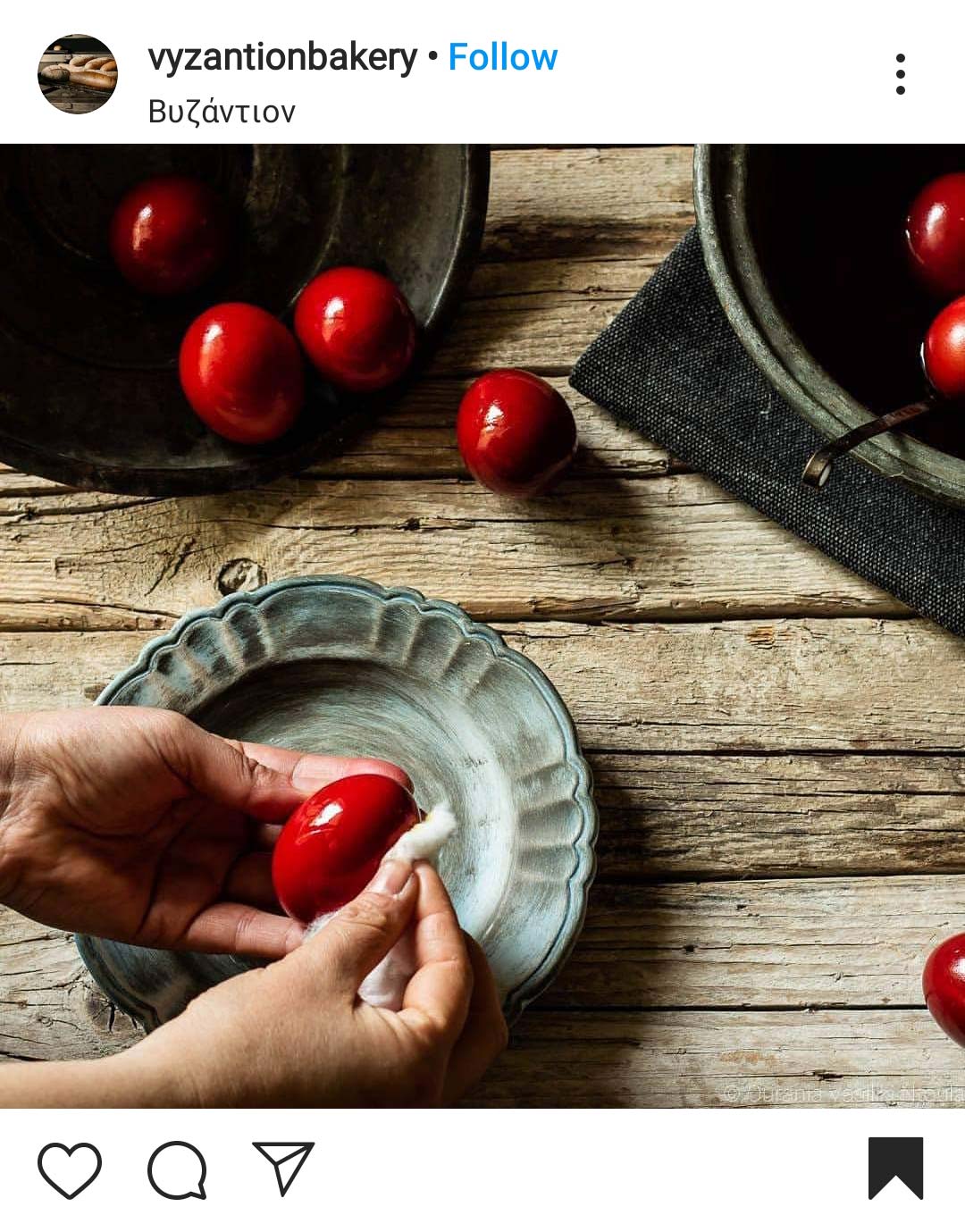


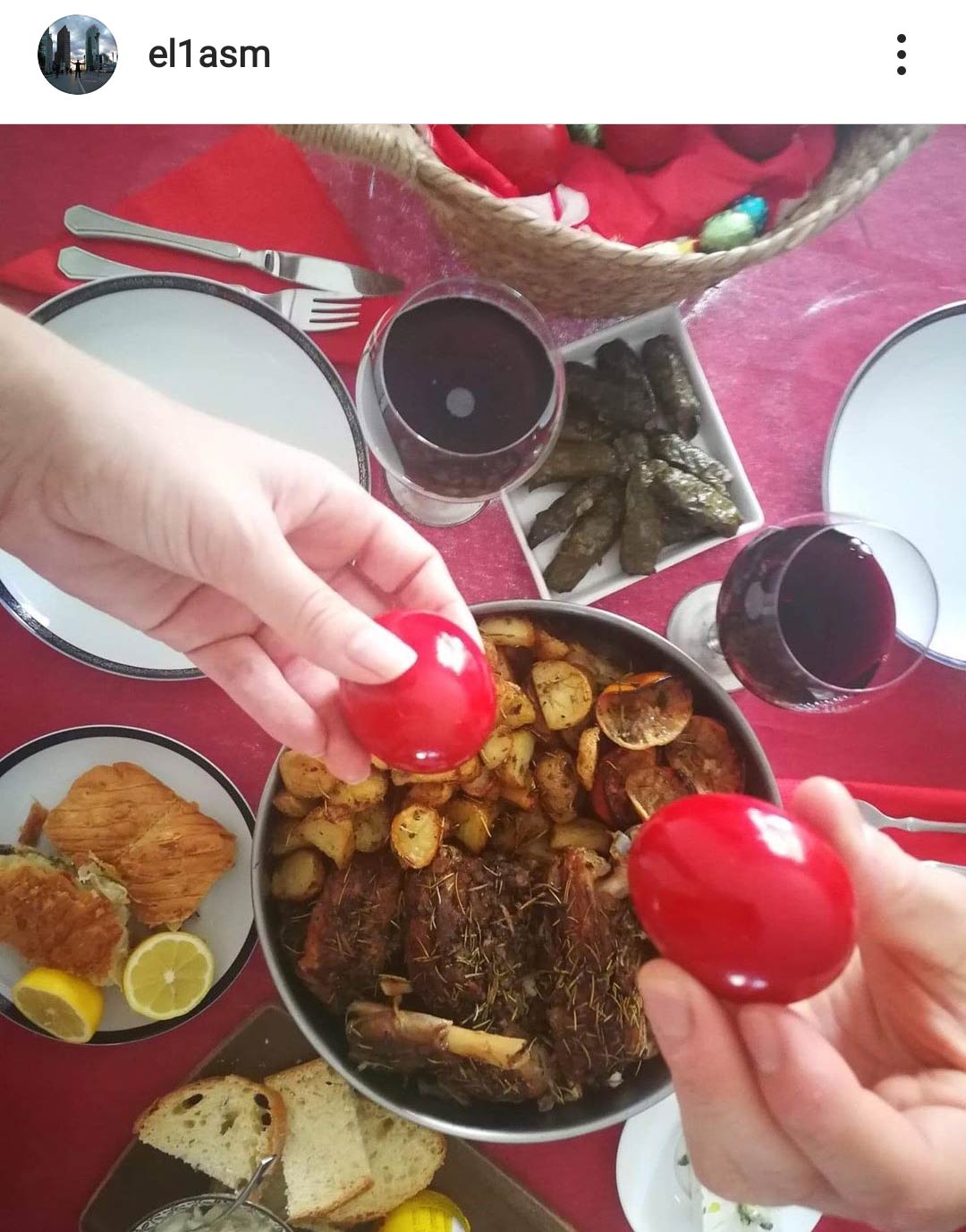
Baking koulourakia (traditional cookies) and tsoureki (aromatic sweet bread) is traditional at Easter time, and, if we’re to trust our social media feeds, people put some extra love into their dough this year. Many made koulourakia in the shape of cute little bunnies, and others covered their tsoureki in chocolate ganache.

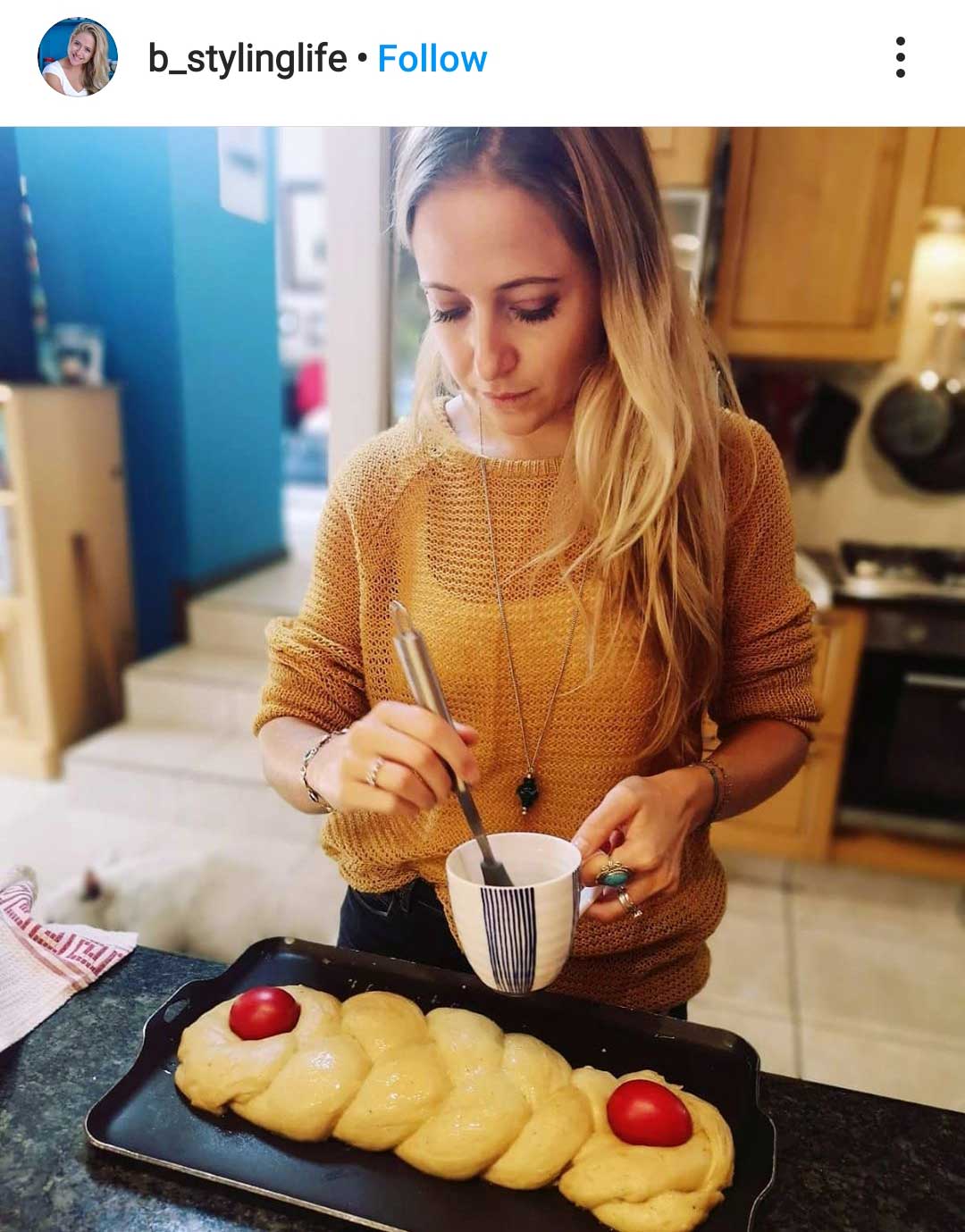
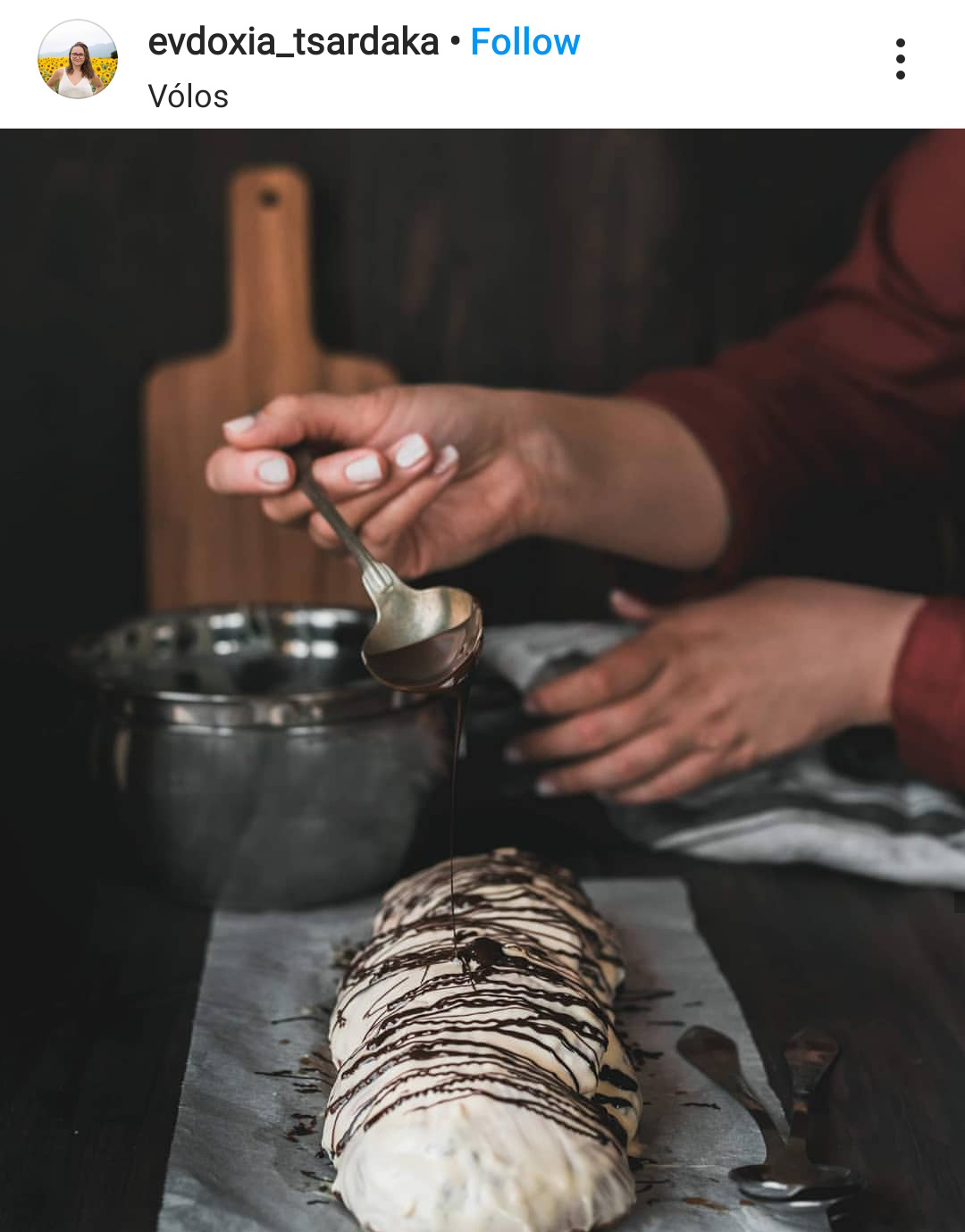

The fireworks over Athens were as impressive as on New Year’s Eve this Easter, but even more striking were red flares that colored the sky, and the lights of the city itself, as every single home in the city seemed to be shining bright.
View this post on Instagram
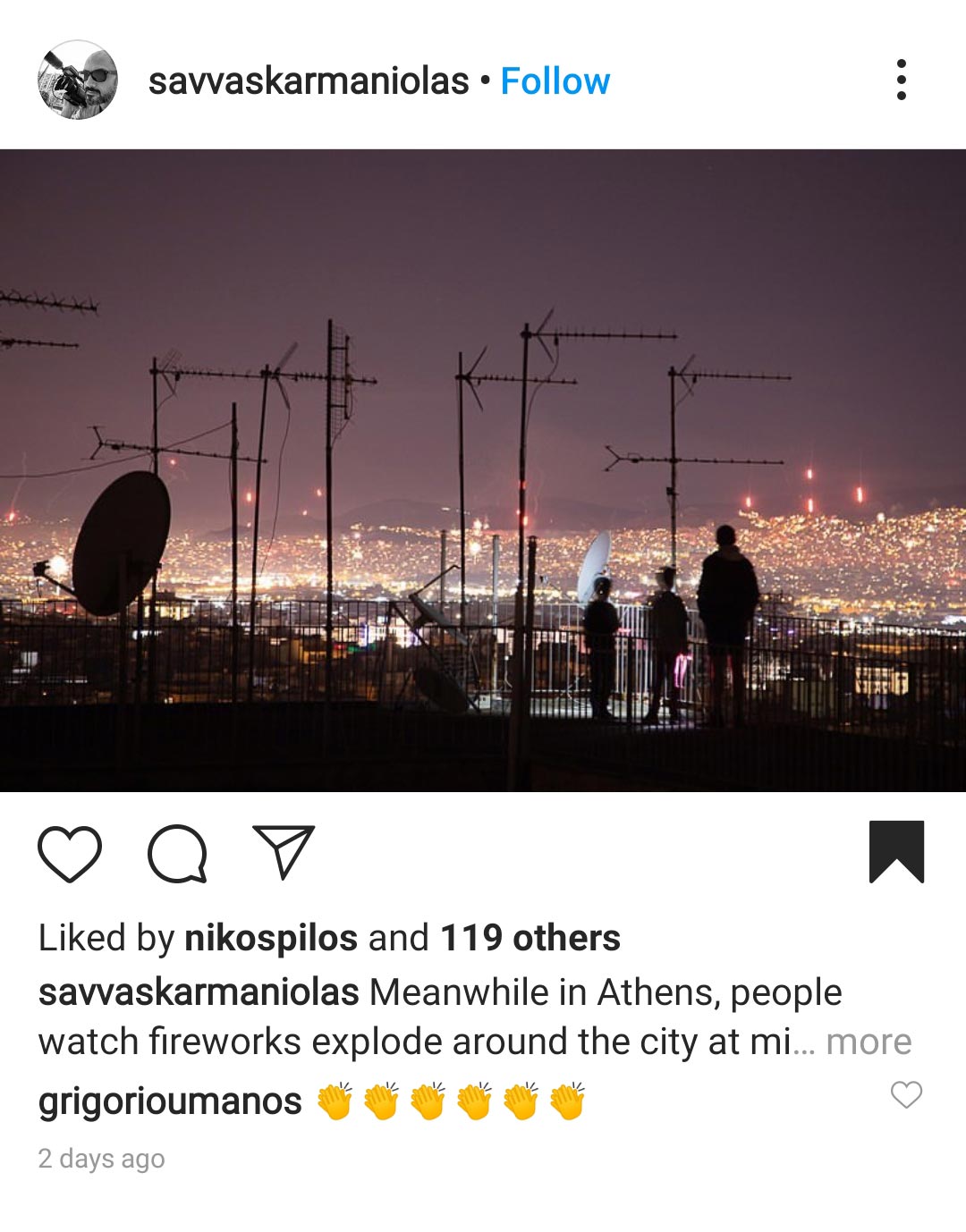
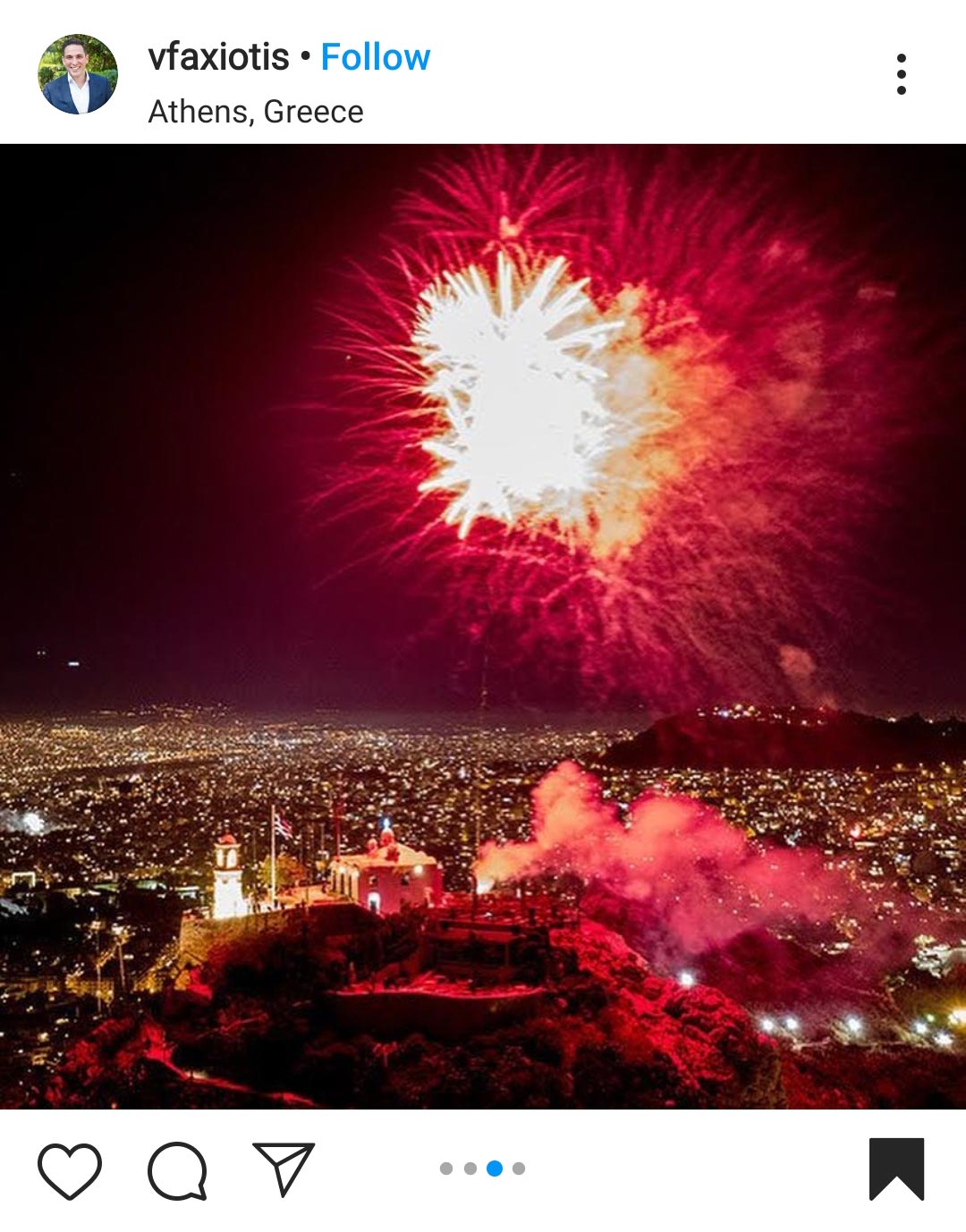

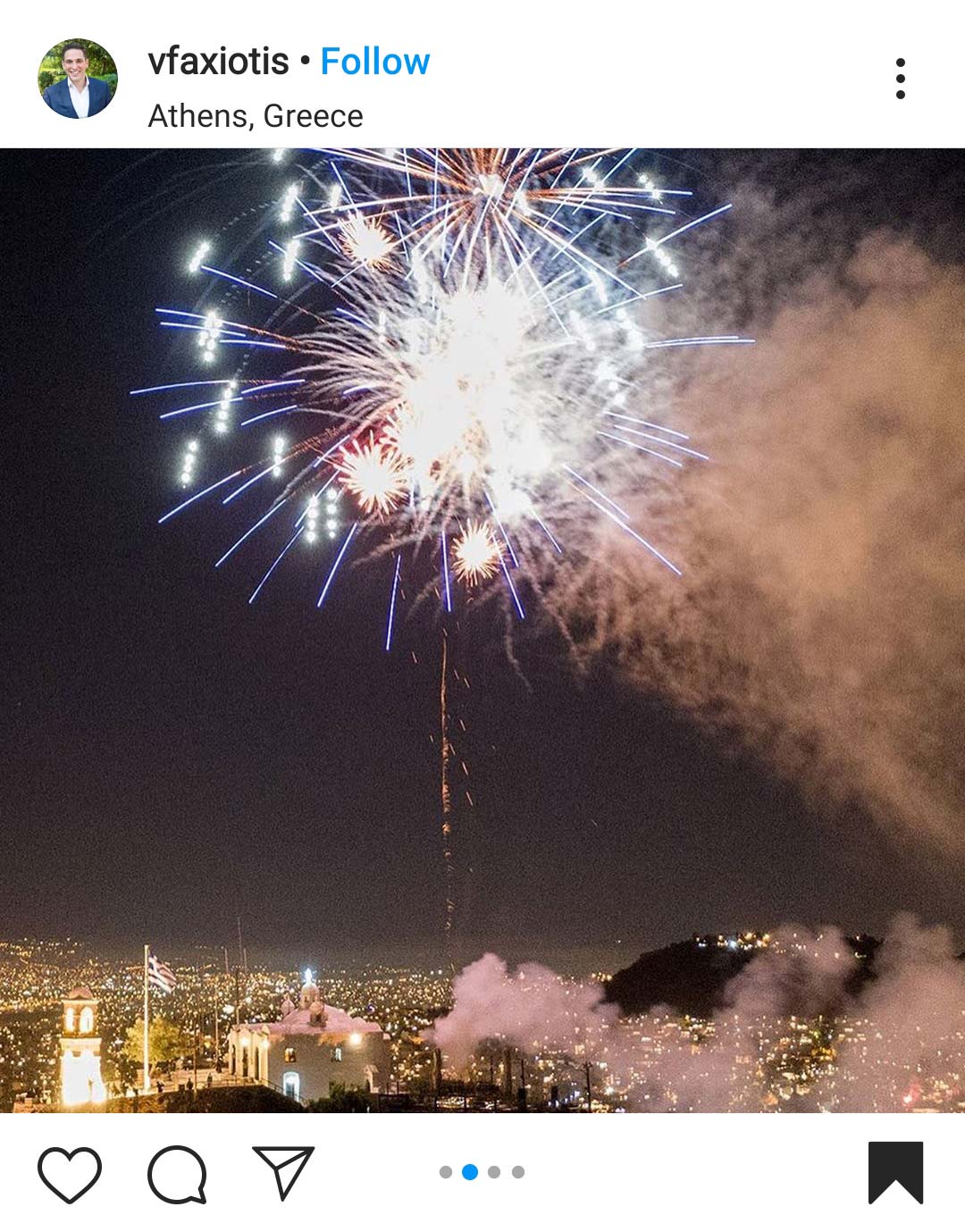
The purpose of the lampada (Easter candle) is normally to bring the Holy Fire home from church after the Anastasi (the celebration of the resurrection of Christ). At home, the smoke from the flame is used to create a cross of soot above the front door, to bless those living there. The candle is then kept lit throughout the early hour meal of rich offal soup that’s traditionally had to break the Lent fast.
This year, church services were all held behind closed doors, and any attempt to deliver the fire to people was forbidden. To keep the tradition and spirit alive, however, many people lit their lampades on their own at home, while watching the services on TV. At midnight, as the priests chanted “Defte lavete fos” (Come and receive the light), people lit their candles and headed onto their balconies and into the street, greeting their neighbors (from afar) with the traditional “Christos Anesti”.
View this post on Instagram
View this post on Instagram
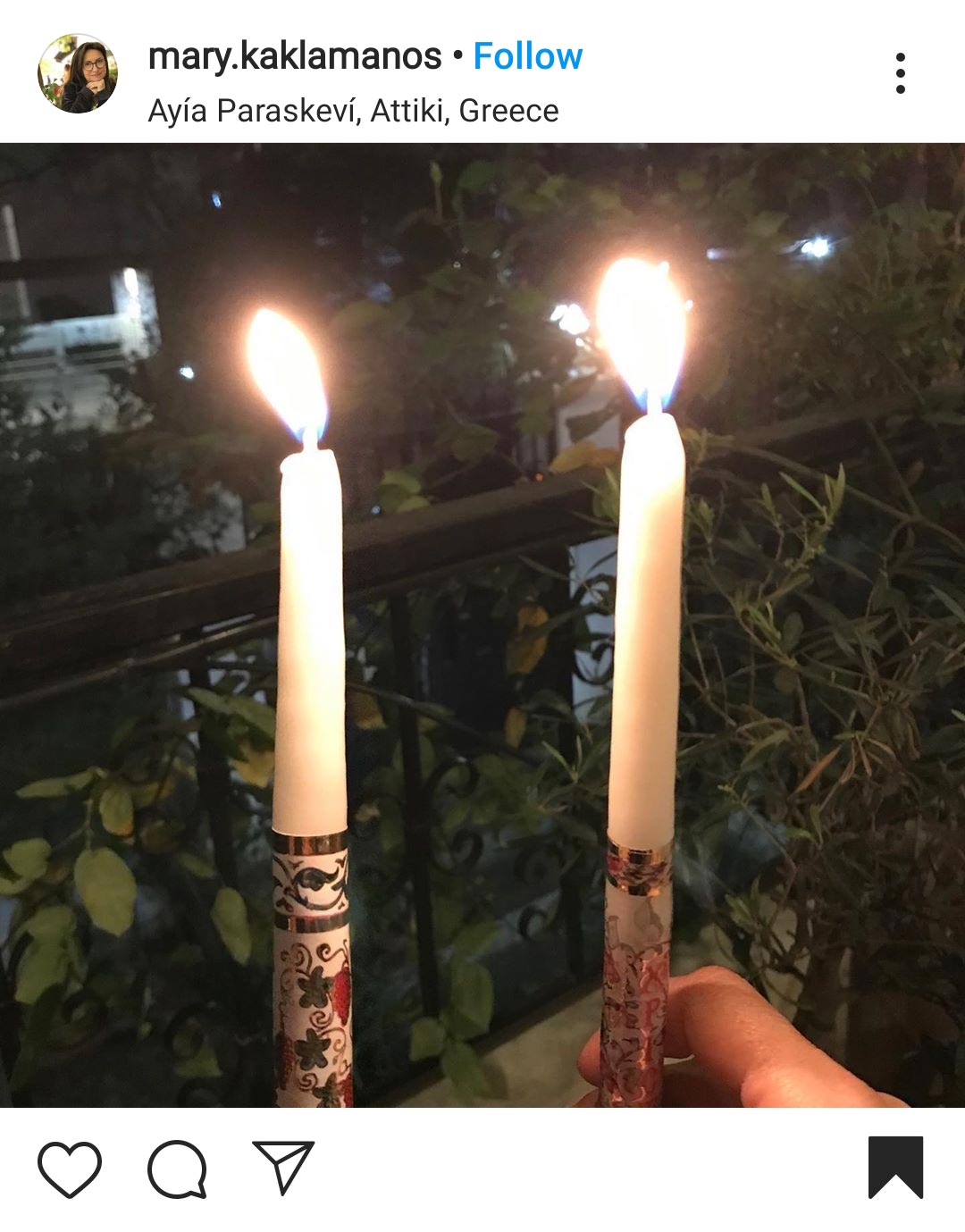
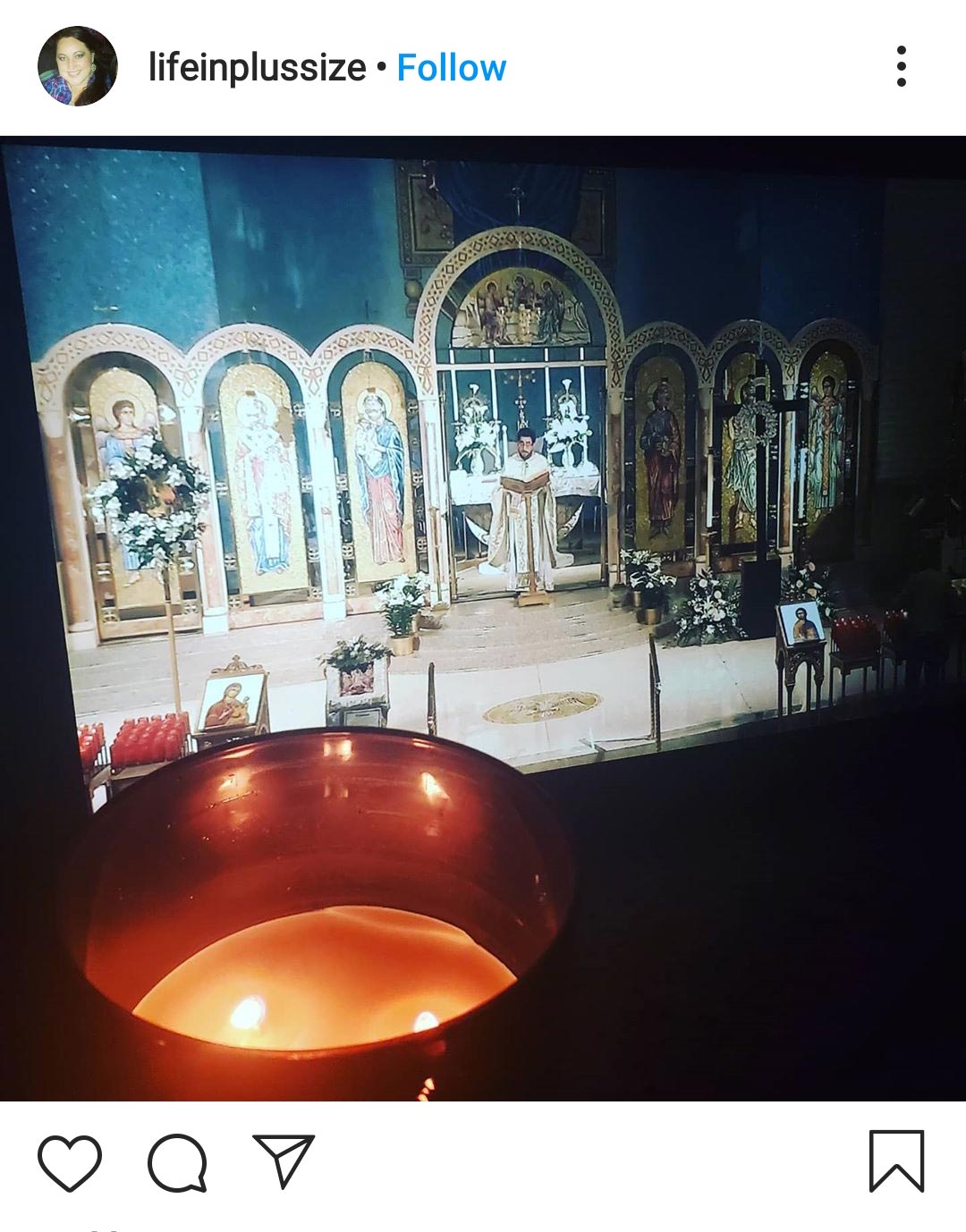
After the Anastasi on Holy Saturday, trumpeter Dimitris Moudopoulos stepped out into the street in the Athenian neighborhood of Pangrati, and presented a touching performance of “Christ has Risen.”
While many cooked their regular Easter feasts in their ovens, or had smaller barbecues on their balconies, others opted to skip the meat this year. Some remarked on the possibility that some animals might have been spared from getting sent to the slaughterhouse this year, seeing it as a happy side effect to the lockdown.
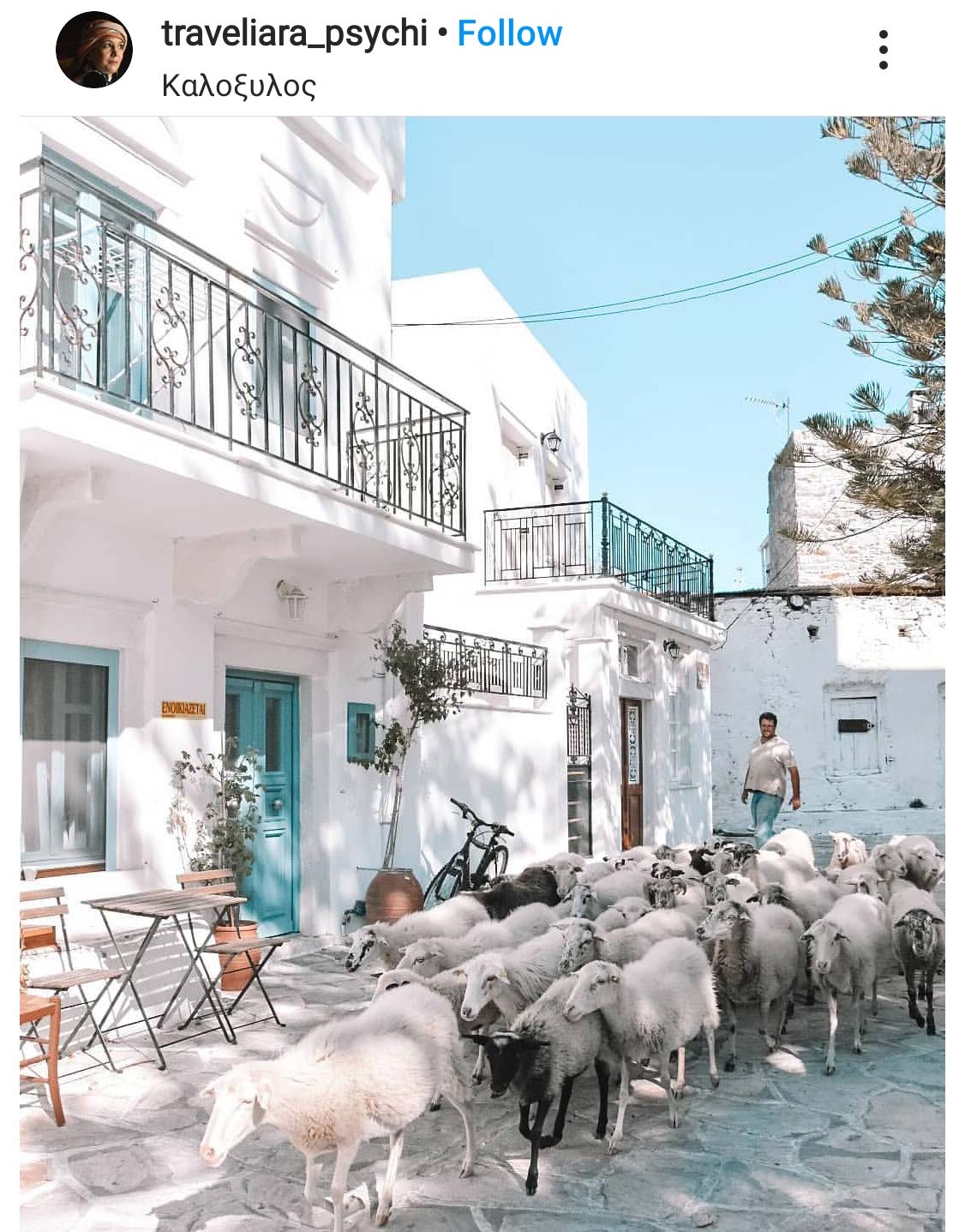
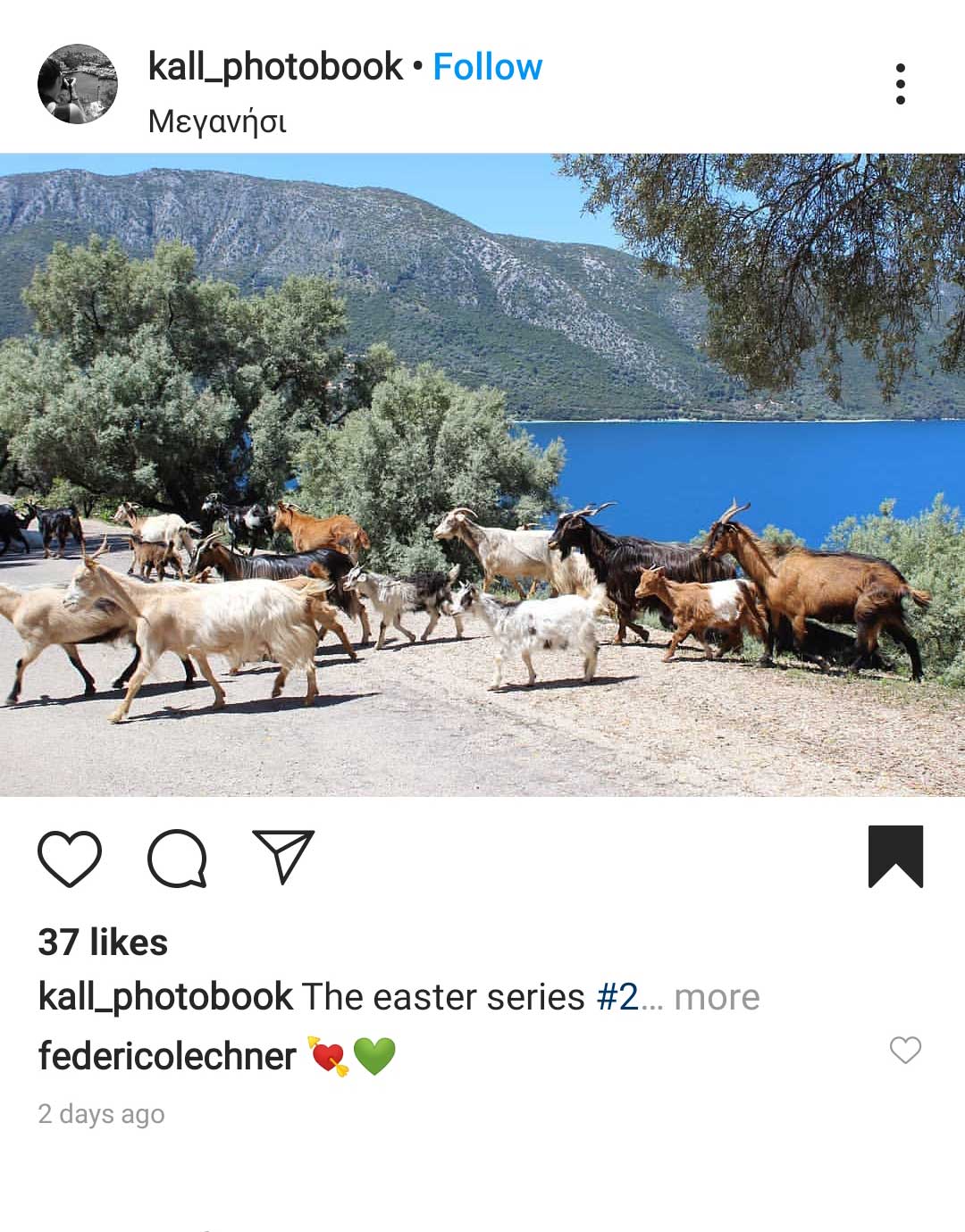
Aside from the nationwide celebrations, many areas of Greece also have their own particular Easter traditions. In Leonidio, for example, large, multicolored sky lanterns are released to the sound of the church bells just after the Anastasi, a custom that’s been lighting up the Easter night sky since the late 19th century.
(Read more about local Easter traditions in the Greek villages and islands here.)
View this post on Instagram
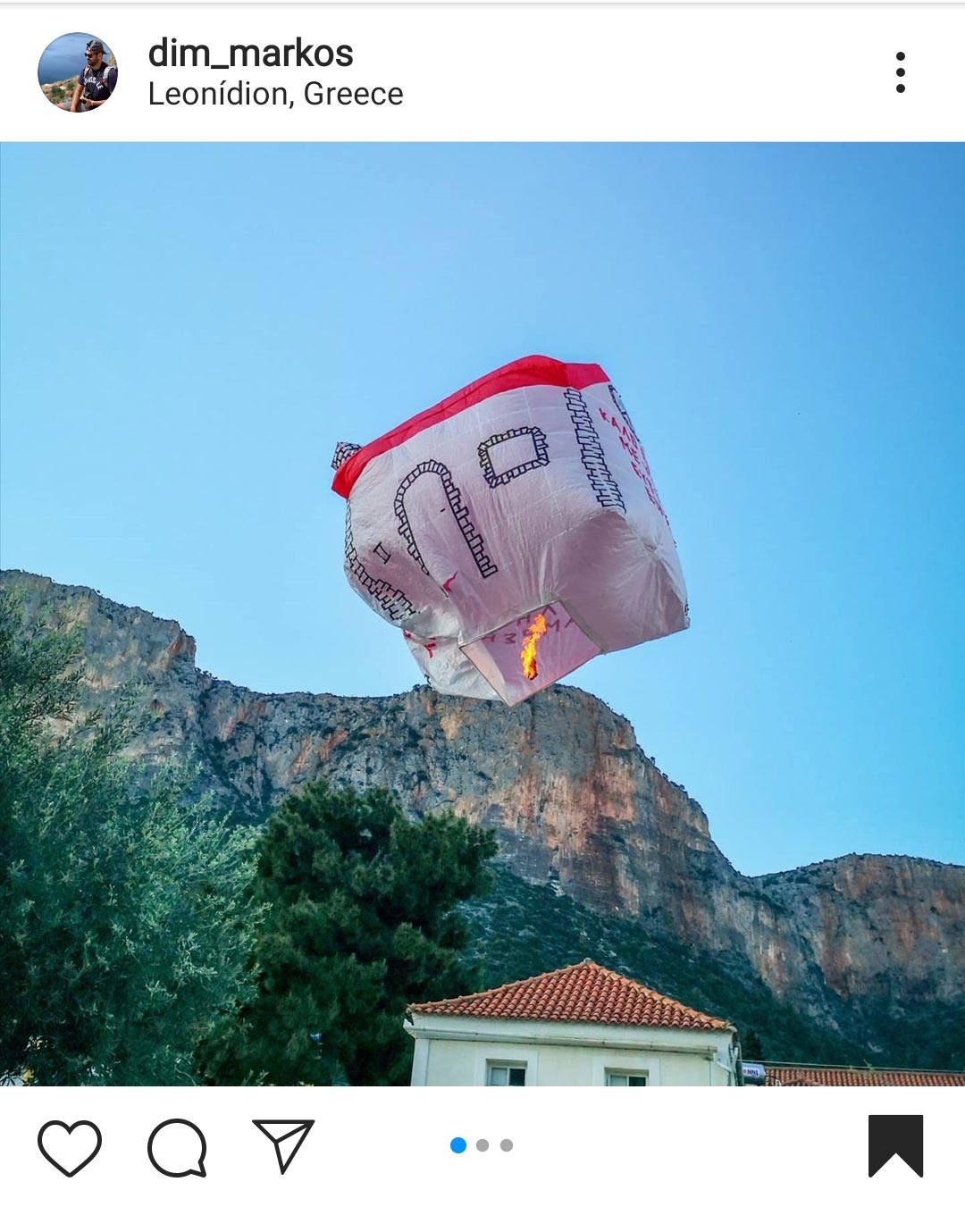
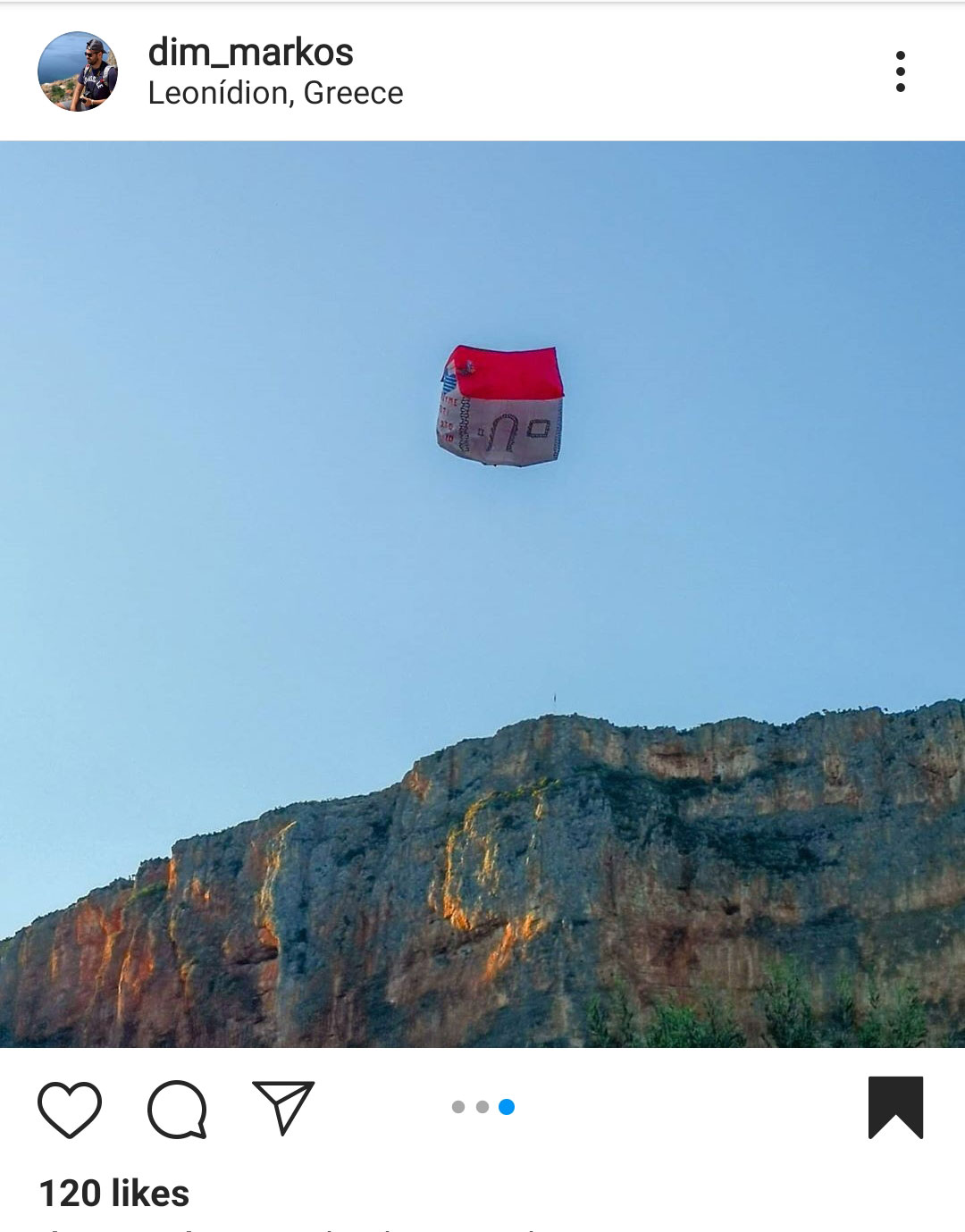
It wouldn’t be Easter without mageiritsa (offal soup) after the Anastasi, and roast lamb on Easter Sunday. While some tavernas offered takeout and delivery services this Easter, most opted to cook at home.
Some people, mainly among those living in the countryside, didn’t let lockdown stop them from spit-roasting a whole lamb or goat in their gardens, as is traditional. Others opted to cook their feast in the oven or to fire up their barbecues on their balconies. In Athens, clouds seemed to have descended around some apartment buildings, and the air filled with the smell of grilling meat.


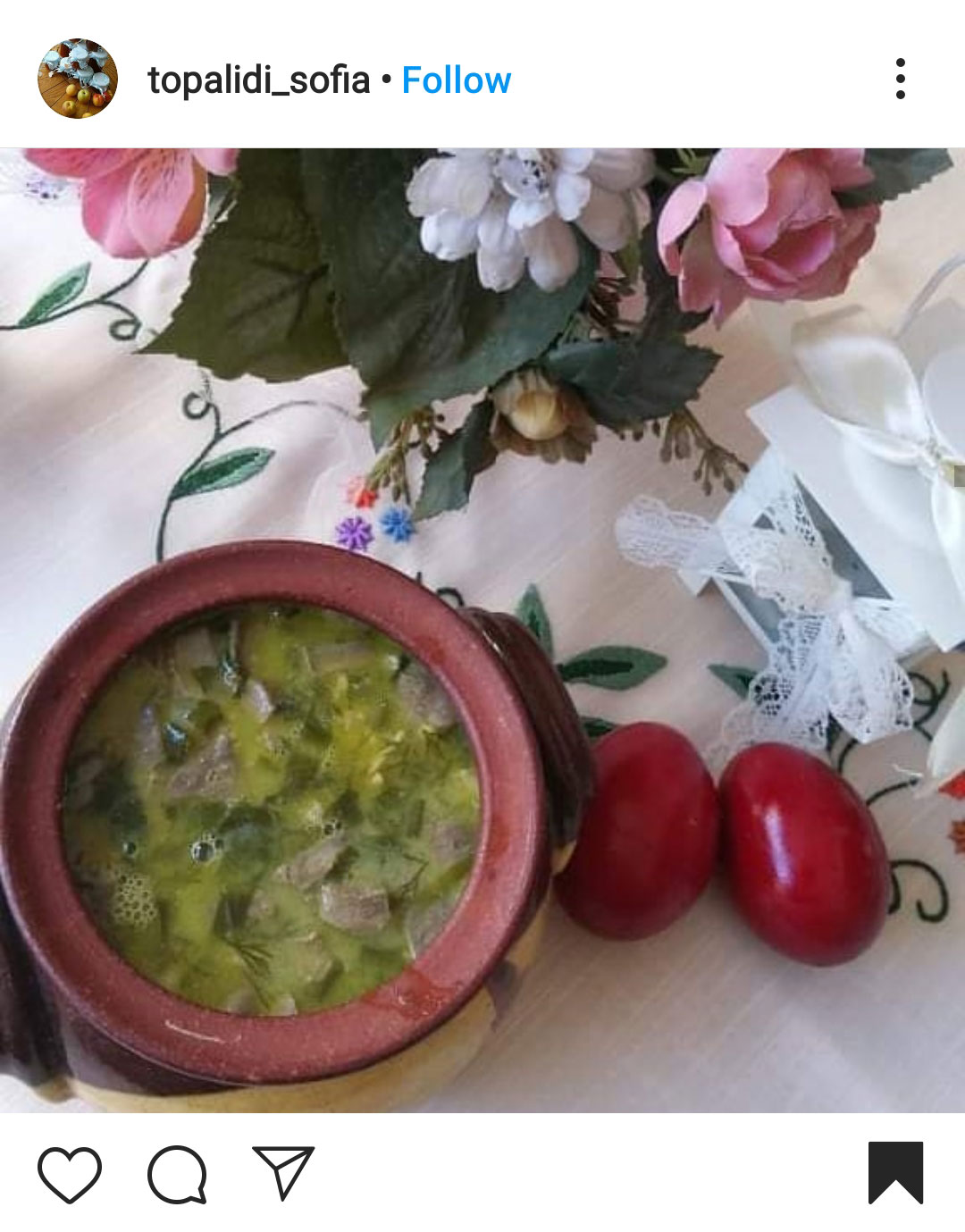
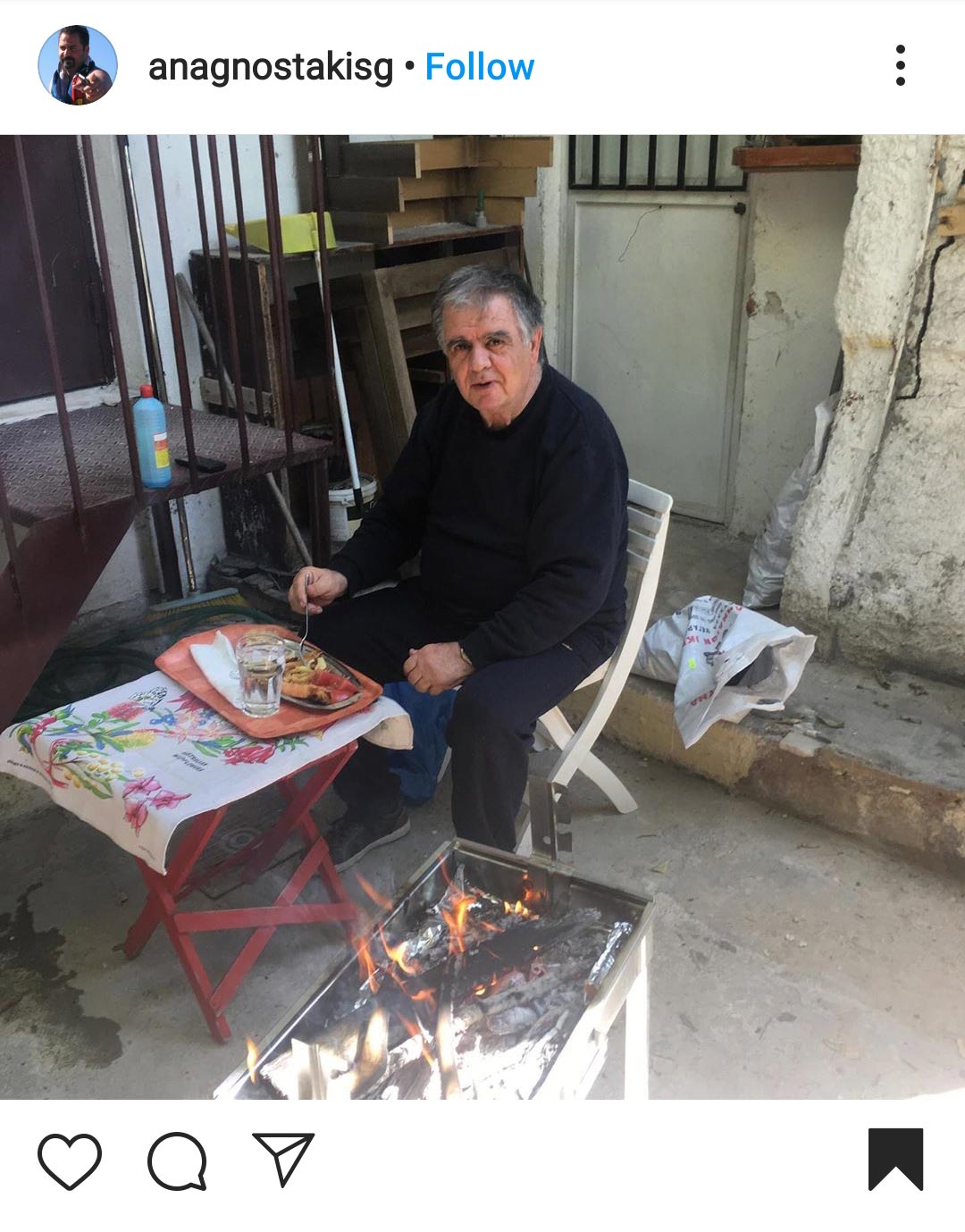
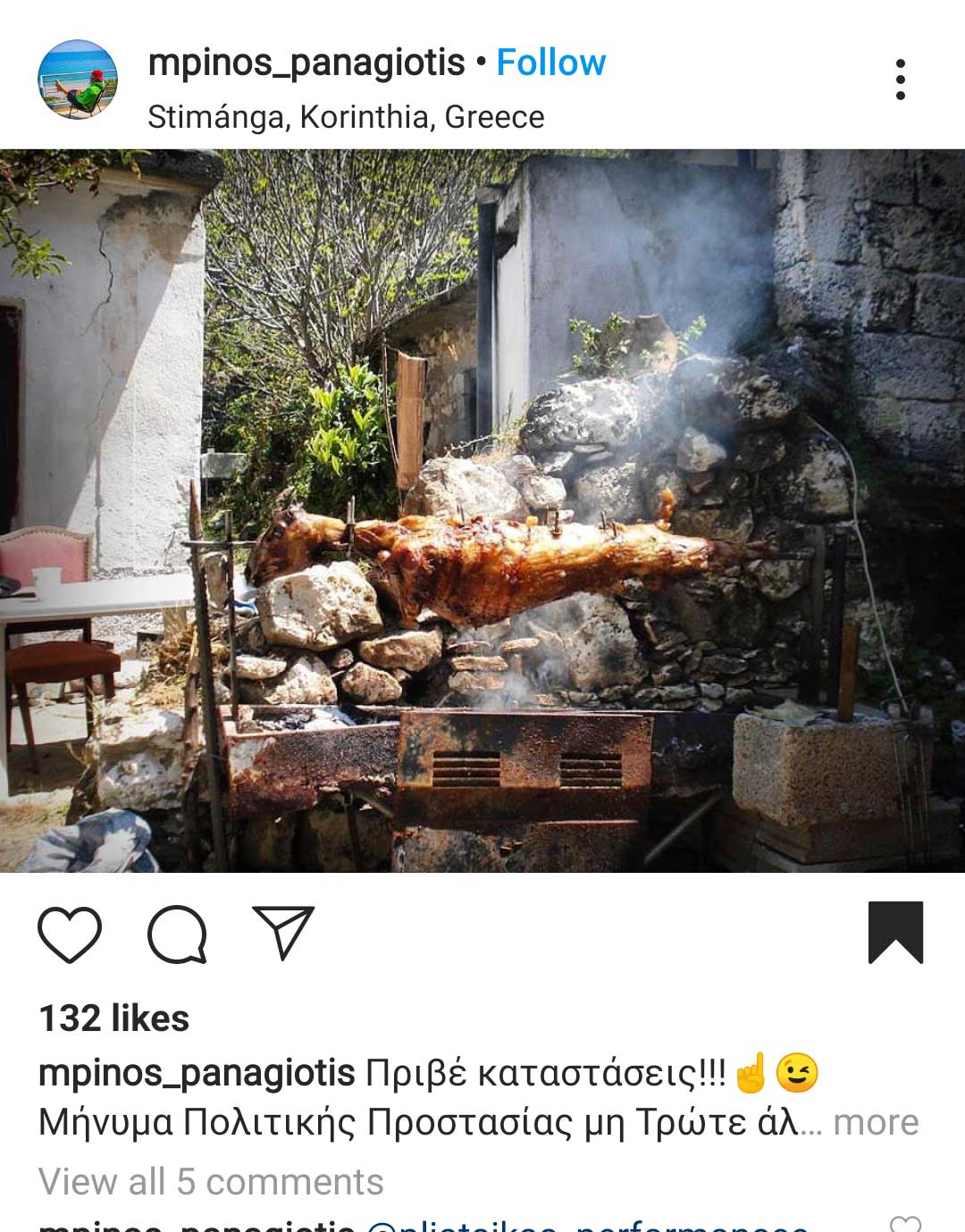
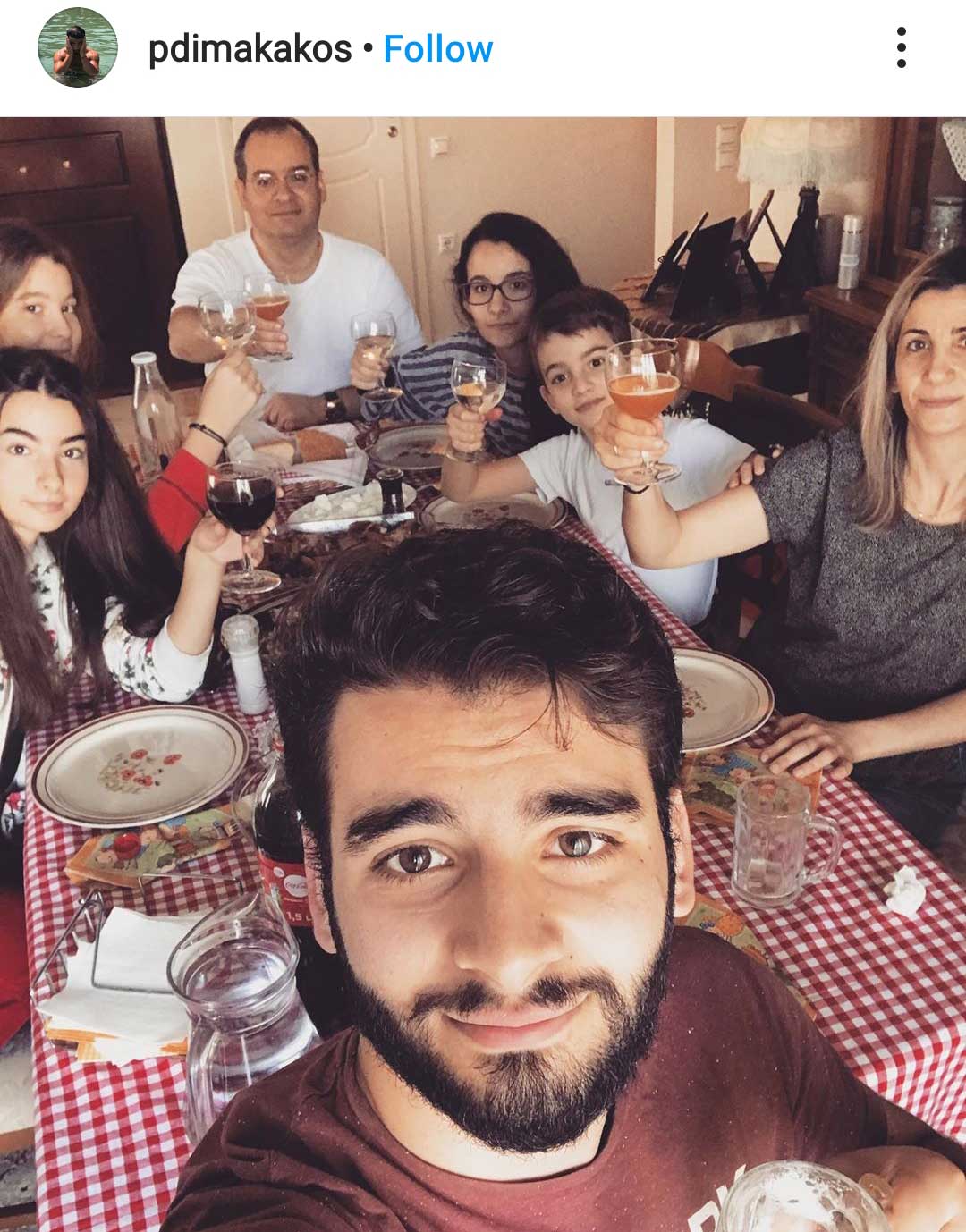
Due to the lockdown, many people spent Easter alone, including individuals incapable of cooking an Easter feast for themselves. In many places, such as the Athenian neighborhood of Peristeri, meals were handed out by the local municipality.
View this post on Instagram
While the government had asked people to stay in their homes this Easter, some made small exceptions to the rule by bringing the celebration out onto the street in front of their houses, dancing (while keeping distance) and bringing neighbors together in spirit to create Easter memories they won’t soon forget. Here, a man performs the traditional Greek zeibekiko folk dance, while his neighbors cheer him on from their balconies.
The approved expansion integrates historic architecture,…
Pick up a copy of our…
The Acropolis Museum unveils its festive…
Athens earns double honors at the…